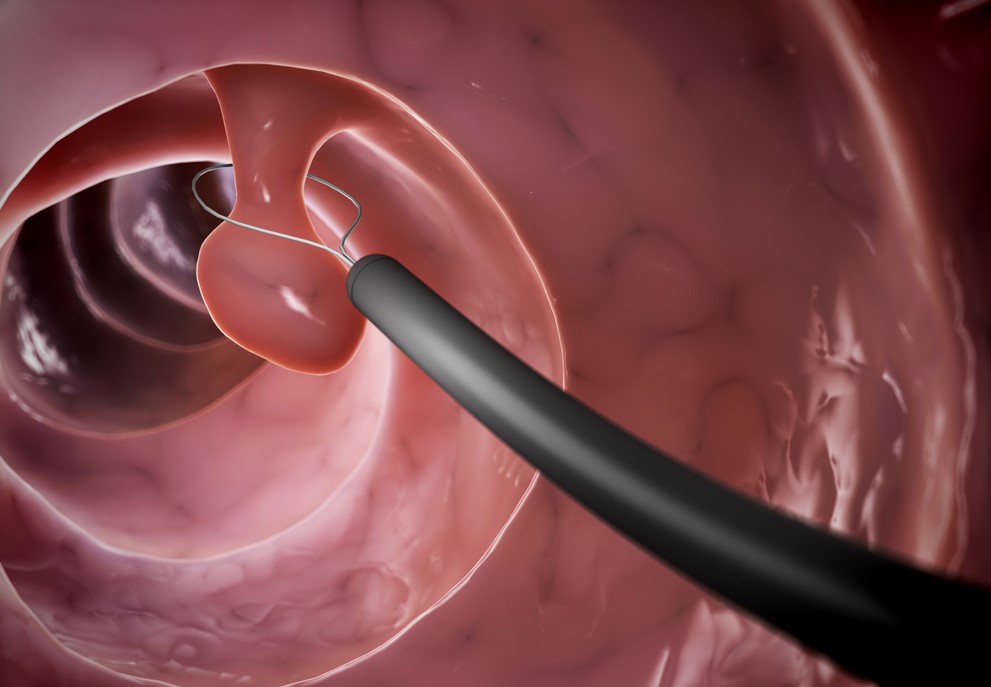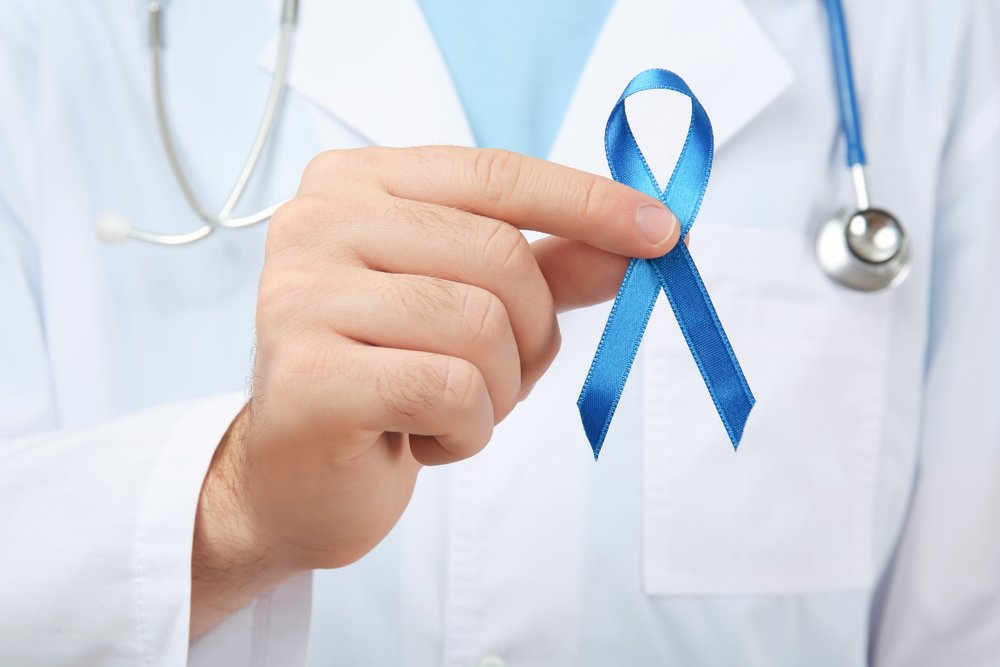Colonoscopy is an examination during which a specialist doctor examines entire large intestine with a special medical instrument, called the endoscope. Endoscope or colonoscope is a flexible tube composed of numerous optic fibres, which transmit a picture of the inside of the colon to a screen, which enables the doctor to check the mucous membrane of the entire large intestine and rectum. In order for the doctor to examine the large intestine in detail, the patient must empty and clean the colon before the examination using proper laxatives.
Reliable diagnostic method
The colonoscopy is the most reliable diagnostic method of detecting precancerous and cancerous changes in the large intestine and rectum. If the doctor finds any polyps during the colonoscopy, they can remove them with the colonoscope. This is called polypectomy. If the doctor spots a tumour during the examination, they will take a sample of the tissue for further examination – this is called a biopsy. The tissue is microscopically examined by pathologists who then prepare a pathohystologic diagnosis, which confirms or refutes the suspicion of cancer or some other intestinal disease.

If the colonoscopy result is completely normal, the next colonoscopy usually needs to be performed after five years. Despite this, it is important to keep a close eye on the functioning of your intestine; if you notice any problems (such as changes in defecation, for example constipation followed by diarrhoea or very thin stools, gases, abdominal pain, blood in the stool or other abnormal abdominal problems), you should consult your general practitioner.
Colonoscopic examination is usually not painful, although it can be slightly unpleasant.
The Examination
The examination usually takes 20 to 60 minutes. During the colonoscopy, you will lay on your side or on your back. In order for the doctor to better see your bowel mucous membrane and any abnormalities, they will blow air into your bowel during the procedure; as a result, you may feel bloated, full of liquid or you can get cramps. Pain during the procedure is extremely rare. In case you will feel any pain, tell your doctor so they can act on it.

Can colonoscopy be dangerous?
Complications are extremely rare. It is very important to have a completely clean colon for the colonoscopy to ensure that the procedure is really safe. Bleeding may occur during the removal of any polyps but it usually stops without additional procedures. Exceptionally, a colon perforation can occur, which requires surgery.
Possible complications
Even though complications after the colonoscopy are very rare, it’s important that you know the signs of such complications to be able to recognise them in time. If you experience a strong pain in your stomach or significant bleeding from your colon (light bleedings will soon pass), if your body temperature increases or you get a fever, you must immediately consult your general practitioner. Bleeding can exceptionally occur a few days after polyps have been removed, so you need to pay close attention to your stools for a few more days.
Possible further treatment
Sometimes, the doctor cannot perform the entire examination or remove all the polyps, which could develop into cancer. In this case, the doctor will discuss with you about the suitable course of further treatment.
If it turns out that you need special treatment, you will consult the specialists and your general practitioner about it. Additional examinations will be performed to determine any abnormalities. You will then agree on the most suitable treatment for you.
Other methods for detecting colorectal cancer
There are several methods for detecting colorectal cancer. The most important and reliable one is colonoscopy, which enables the examination of the entire large intestine. If colonoscopy is unsuccessful, gastroenterologist can refer the patient to CT colonography.
Colonoscopy Centres
Where can colonoscopy be performed?
The colonoscopy is performed in the hospital or in any of the outpatient clinics specialised for the treatment of intestinal diseases (gastroenterological clinics) as well as in diagnostic centres. In the framework of the Svit Programe, the Center Svit will organize such examination according to your agreement: 01 620 45 21.



